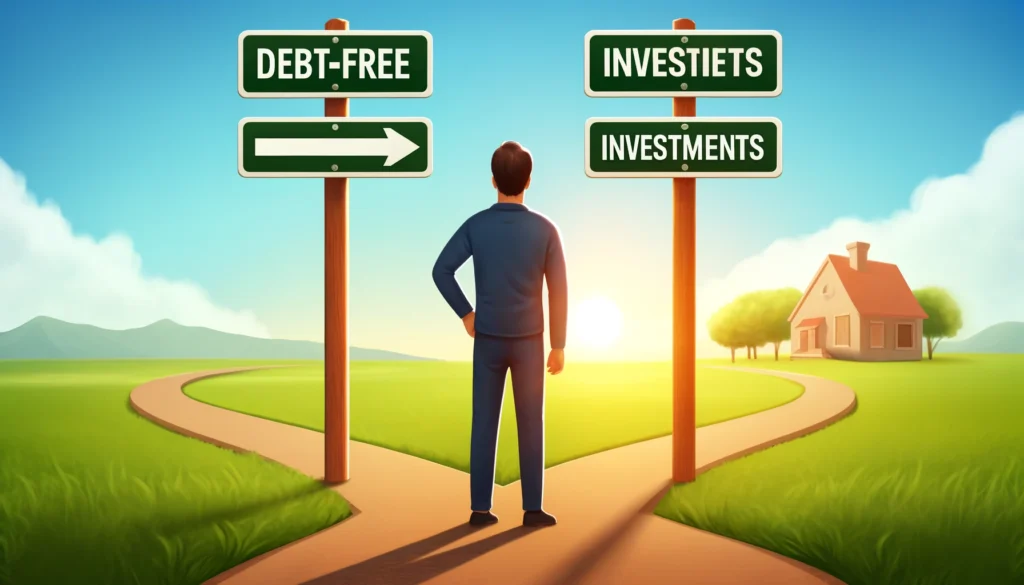Disadvantages of Being Debt-Free
Being debt-free is often heralded as the ultimate financial goal. Imagine the freedom of not having to worry about monthly payments, interest rates, or loan terms. It sounds like a dream, right? However, being completely debt-free isn’t always the financial nirvana it’s cracked up to be. In this post, we will explore some surprising disadvantages of being debt-free that may make you rethink your approach to personal finance.
The Role of Debt in Building Wealth
First, let’s establish that not all debt is bad. There’s a clear distinction between good debt and bad debt. Good debt, such as a mortgage or student loan, can be an investment in your future. Bad debt, like high-interest credit card debt, can be financially crippling. When appropriately managed, good debt can help you build wealth over time. Here’s how:
- Leverage: Borrowing money to invest in appreciating assets can amplify your returns. For example, real estate investments can offer substantial long-term gains.
- Credit History: Maintaining some debt and managing it responsibly can boost your credit score, making it easier to obtain favorable loan terms in the future.
- Tax Benefits: Certain debts, like mortgages, come with tax advantages that can reduce your overall tax burden.
Think about Sarah, a young professional who decided to invest in a rental property. By taking on a mortgage, she was able to purchase a property that has since appreciated significantly in value. The rental income covers the mortgage payments, and Sarah benefits from tax deductions on mortgage interest. Without leveraging this debt, Sarah wouldn’t have been able to make this profitable investment.

Missed Opportunities for Growth
One of the critical disadvantages of being completely debt-free is the potential for missed investment opportunities. When you eliminate all debt, you might also eliminate your ability to leverage funds for lucrative investments. Consider the following scenario:
- You have $100,000 saved up and decide to pay off your mortgage with it. While this gives you the peace of mind of owning your home outright, it also ties up a significant amount of capital in a non-liquid asset.
- If you had instead invested that $100,000 in a diversified portfolio with an average annual return of 7%, you could potentially earn $7,000 per year in returns. Over 10 years that amounts to $70,000 in gains, significantly more than the interest saved by paying off the mortgage early.
By focusing solely on becoming debt-free, you might miss out on these growth opportunities. This is a critical point for anyone considering the trade-offs between debt repayment and investing.
Lack of Credit History
Another surprising drawback of being debt-free is the potential impact on your credit score. While it may seem counterintuitive, having no debt can sometimes negatively affect your creditworthiness. Here’s why:
- Credit Mix: Credit scoring models consider the variety of credit accounts you have. A mix of credit types, such as credit cards, installment loans, and mortgages, can positively impact your score.
- Credit Utilization: Having no debt might lead to a low credit utilization ratio, which is good, but it also means there’s no recent activity to demonstrate responsible credit behavior.
- Credit History Length: If you close all your credit accounts, you could shorten the average age of your credit history, which can lower your score.
Maintaining a small amount of manageable debt and paying it off regularly can keep your credit history active and robust. For instance, keeping a low-balance credit card and paying it off in full each month can help maintain your credit score without incurring interest charges.
Opportunity Cost of Being Debt-Free
The opportunity cost is a fundamental concept in economics, and it applies to personal finance as well. When you choose to pay off all your debt, you might sacrifice other valuable opportunities. For instance:
- Investing in Education: Instead of using funds to pay off debt, investing in further education or professional development could yield higher lifetime earnings.
- Starting a Business: Capital that goes towards debt repayment could be used to start or expand a business, potentially leading to greater financial independence and wealth accumulation.
Understanding the opportunity costs associated with being debt-free is crucial for making informed financial decisions. Imagine if Elon Musk had focused solely on paying off debt rather than investing in his startups. The world might not have seen the revolutionary advancements from companies like Tesla and SpaceX.
The Psychological Impact
While financial freedom is often associated with peace of mind, being entirely debt-free can sometimes have unexpected psychological effects. Here are a few:
- Complacency: Without the pressure of debt, some individuals might become complacent about their finances, neglecting to save or invest adequately for the future.
- Stress of Financial Management: For some, the process of meticulously managing every aspect of their finances to remain debt-free can be stressful and time-consuming.
- Risk Aversion: The desire to avoid debt at all costs can lead to excessive risk aversion, preventing individuals from taking calculated risks that could lead to significant financial gains.
It’s essential to balance the psychological benefits of being debt-free with the potential drawbacks. For example, being debt-free might give you peace of mind, but it might also make you too conservative in your investment strategies, limiting your potential for financial growth.
Real-Life Examples and Tips
To better understand these concepts, let’s look at some real-life examples:
- Jane’s Mortgage Dilemma: Jane had a $200,000 mortgage with an interest rate of 3.5%. She inherited $200,000 and decided to pay off her mortgage. While she now owns her home outright, she missed out on potential investment returns. If she had invested the inheritance in a diversified portfolio, she could have seen significant growth over the same period.
- Tom’s Credit Score: Tom prided himself on being debt-free. However, when he applied for a new mortgage, he was surprised to find his credit score wasn’t as high as expected. With no recent credit activity, his score had stagnated. By keeping a small, manageable credit card balance and paying it off monthly, he could have maintained a higher score.
Tips for a Balanced Approach:
- Diversify Investments: Instead of focusing solely on debt repayment, allocate funds towards a diversified investment portfolio.
- Maintain Active Credit Accounts: Keep at least one or two credit accounts active to maintain a healthy credit history.
- Consider Opportunity Costs: Weigh the benefits of debt repayment against potential investment opportunities.
- Set Financial Goals: Establish clear financial goals that balance debt management with wealth-building strategies.
- Stay Educated: Continuously educate yourself about personal finance and investment strategies to make informed decisions.
Conclusion: Striking the Right Balance
While being debt-free can offer a sense of financial security, it’s not without its drawbacks. The key is to strike a balance between managing debt and leveraging it for growth. By understanding the surprising disadvantages of being debt-free, you can make more informed decisions that support both your short-term peace of mind and long-term financial goals.
Remember, it’s not about having no debt at all costs but about managing debt wisely and using it as a tool to enhance your financial well-being. By adopting a balanced approach, you can enjoy the benefits of being debt-free while still seizing opportunities for wealth creation.
In summary, the pursuit of being entirely debt-free might lead to missed investment opportunities, a potentially lower credit score, and overlooked opportunity costs. Additionally, the psychological impacts of such a financial strategy can sometimes be counterproductive. Therefore, consider maintaining a healthy level of good debt and focus on a holistic approach to wealth management. This strategy not only provides financial flexibility but also positions you for more tremendous long-term success.
If you have any questions or need personalized financial advice, feel free to reach out to us at Beyond Your Hammock. We’re here to help you navigate the complexities of personal finance and achieve your financial goals.

